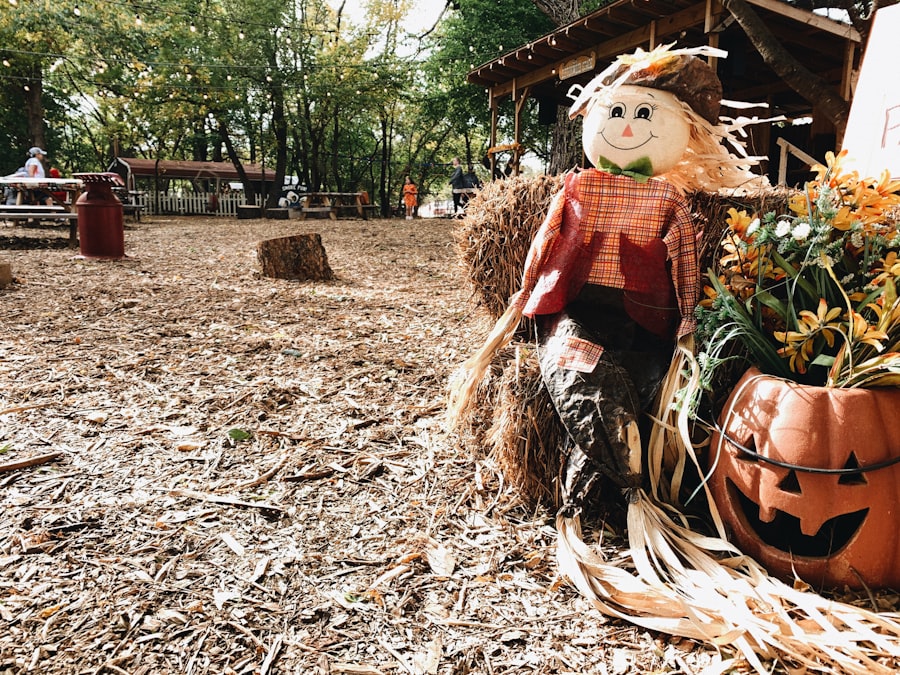Magpies are intelligent and social birds characterized by their distinctive black and white plumage. They exhibit curious and sometimes mischievous behavior, which can pose challenges for chicken owners. As opportunistic feeders, magpies scavenge for food in various environments, including urban and suburban areas.
They are territorial birds, particularly during breeding season, and will aggressively defend their nesting sites. These birds are known for their diverse vocalizations, ranging from melodious warbles to harsh, chattering calls. Magpies are highly adaptable and can thrive in a wide range of habitats, from woodlands to open fields.
Understanding magpie behavior is essential for effectively deterring them from chicken coops. Magpies demonstrate problem-solving abilities and can learn from their experiences. Their social nature often leads them to work collaboratively in groups to achieve their goals.
This persistence can make them determined when attempting to access food sources, including chicken coops. Comprehending magpie behavior allows for the implementation of proactive measures to protect chickens and prevent potential conflicts with these clever birds.
Table of Contents
- 1 Creating a Secure Chicken Coop
- 2 Using Visual Deterrents
- 3 Implementing Sound Deterrents
- 4 Removing Attractive Food Sources
- 5 Utilizing Scare Tactics
- 6 Seeking Professional Help if Necessary
- 7 FAQs
- 7.1 What are magpies and why do they pose a threat to chickens?
- 7.2 What are some effective methods to keep magpies away from chickens?
- 7.3 Are there any natural deterrents that can be used to keep magpies away from chickens?
- 7.4 Are there any legal restrictions on how to keep magpies away from chickens?
- 7.5 What should I do if I encounter a magpie that is posing a threat to my chickens?
Key Takeaways
- Magpies are intelligent and social birds that are known for their curiosity and territorial behavior.
- A secure chicken coop with strong fencing and a covered run can help protect chickens from magpie attacks.
- Visual deterrents such as reflective objects and predator decoys can help deter magpies from entering the chicken coop area.
- Sound deterrents such as wind chimes or ultrasonic devices can be effective in keeping magpies away from the coop.
- Removing attractive food sources such as spilled grain or uncovered garbage can help reduce magpie activity around the coop.
- Scare tactics such as motion-activated sprinklers or sudden loud noises can startle magpies and discourage them from approaching the coop.
- If magpie activity continues to be a problem, seeking professional help from a wildlife control expert may be necessary to address the issue effectively.
Creating a Secure Chicken Coop
Secure the Coop Structure
One of the most effective ways to protect your chickens from magpie predation is to create a secure and predator-proof chicken coop. This means ensuring that the coop is constructed with sturdy materials and that all openings are securely covered with wire mesh or other barriers. It’s also important to regularly inspect the coop for any signs of wear or damage and to promptly repair any weak spots that could potentially be exploited by magpies or other predators.
Secure the Surrounding Area
In addition to securing the physical structure of the coop, it’s also important to consider the layout of the surrounding area. Make sure that there are no overhanging branches or other structures that could provide easy access for magpies to enter the coop. It’s also a good idea to keep the area around the coop clear of any debris or clutter that could provide cover for potential predators.
Provide a Safe and Comfortable Environment
Another important aspect of creating a secure chicken coop is to provide adequate roosting and nesting areas for your chickens. This will not only help to keep them safe from magpie attacks, but it will also provide them with a comfortable and stress-free environment in which to lay eggs and raise their young.
Using Visual Deterrents

Visual deterrents can be an effective way to discourage magpies from targeting your chicken coop. One popular visual deterrent is the use of reflective objects, such as CDs or aluminum foil strips, which can be hung around the coop to create flashes of light that can startle and deter magpies. Another visual deterrent is the use of scarecrows or decoy predators, such as plastic owls or hawks, which can create the illusion of a potential threat and discourage magpies from approaching the coop.
It’s also possible to use visual deterrents that exploit the natural instincts of magpies. For example, hanging shiny objects that resemble predator eyes can create the illusion of being watched, which can make magpies feel vulnerable and less likely to approach the coop. Additionally, using brightly colored objects or flags can create a visual barrier that magpies may be hesitant to cross.
When using visual deterrents, it’s important to regularly change their placement and appearance to prevent magpies from becoming accustomed to them. This will help to maintain their effectiveness over time and ensure that magpies continue to perceive them as a potential threat. By using visual deterrents strategically, you can create an environment around your chicken coop that is unappealing to magpies and discourages them from targeting your flock.
Implementing Sound Deterrents
Sound deterrents can be an effective way to deter magpies from targeting your chicken coop. One popular sound deterrent is the use of ultrasonic devices that emit high-frequency sounds that are unpleasant for magpies and can discourage them from approaching the coop. Another sound deterrent is the use of distress calls or predator sounds that can create the illusion of a potential threat and deter magpies from entering the area.
It’s also possible to use sound deterrents that exploit the natural instincts of magpies. For example, playing recordings of predator calls or distress calls of other birds can create a sense of danger that can make magpies feel vulnerable and less likely to approach the coop. Additionally, using noise-making devices such as wind chimes or bells can create a disruptive environment that magpies may find uncomfortable and unappealing.
When using sound deterrents, it’s important to consider the impact on other wildlife and nearby residents. It’s also important to regularly change the type and pattern of sounds emitted by these devices to prevent magpies from becoming accustomed to them. By implementing sound deterrents strategically, you can create an environment around your chicken coop that is unappealing to magpies and discourages them from targeting your flock.
Removing Attractive Food Sources
Magpies are opportunistic feeders and will often scavenge for food in a variety of environments, including urban and suburban areas. By removing attractive food sources from around your chicken coop, you can greatly reduce the likelihood of magpies targeting your flock. This means ensuring that any spilled grain or feed is promptly cleaned up and stored in secure containers that are inaccessible to magpies.
It’s also important to consider other potential food sources that may be attracting magpies to your property. This could include pet food left outside, garbage bins that are not properly secured, or fruit trees that are dropping ripe fruit onto the ground. By taking proactive measures to remove these attractive food sources, you can greatly reduce the risk of magpie predation and discourage them from targeting your chickens.
In addition to removing attractive food sources, it’s also important to consider the impact of other wildlife on magpie behavior. For example, if there are large populations of other birds or small mammals in the area, this may attract magpies looking for easy prey. By taking steps to manage these populations and reduce their impact on your property, you can create an environment that is less appealing to magpies and reduce the likelihood of conflicts with your chickens.
Utilizing Scare Tactics

Using Motion-Activated Devices
One effective way to deter magpies from targeting your chicken coop is by using motion-activated devices that emit sudden bursts of noise or light when triggered by approaching magpies. This can startle and deter them from approaching the coop, creating an environment that is unappealing and potentially dangerous for them.
Physical Barriers and Exploiting Natural Instincts
Another scare tactic is the use of physical barriers such as netting or wire mesh that can be placed around the coop to prevent magpies from accessing it. This can create a physical barrier that makes it difficult for magpies to approach the coop and reduces the likelihood of conflicts with your chickens. It’s also possible to utilize scare tactics that exploit the natural instincts of magpies. For example, using visual or auditory cues that mimic potential threats such as predator eyes or distress calls can create a sense of danger that makes magpies feel vulnerable and less likely to approach the coop.
Maintaining Effectiveness Over Time
When utilizing scare tactics, it’s important to regularly change their placement and appearance to prevent magpies from becoming accustomed to them. This will help to maintain their effectiveness over time and ensure that magpies continue to perceive them as a potential threat.
By utilizing scare tactics strategically, you can create an environment around your chicken coop that is unappealing to magpies and discourages them from targeting your flock.
Seeking Professional Help if Necessary
If you have tried various deterrent methods but continue to experience issues with magpie predation on your chickens, it may be necessary to seek professional help. Wildlife experts or pest control professionals may be able to provide additional insight into effective deterrent methods or offer specialized solutions tailored to your specific situation. Professional help may also be necessary if you are dealing with a particularly persistent or aggressive group of magpies that pose a significant threat to your chickens.
In some cases, it may be necessary to obtain permits or licenses in order to legally address the issue, especially if lethal control methods are being considered. It’s important to seek professional help from individuals or organizations with experience in wildlife management and conservation in order to ensure that any actions taken are ethical and in compliance with local regulations. By seeking professional help if necessary, you can gain access to additional resources and expertise that can help you effectively address issues with magpie predation on your chickens while minimizing harm to wildlife populations.
If you’re looking for tips on how to keep magpies away from your chickens, you might also be interested in learning about the best kind of coop for your chickens. Check out this article on what kind of coop is best for chickens to ensure that your feathered friends have a safe and secure home. And for more poultry-related advice, visit poultrywizard.com or read about the benefits of a garden chicken coop at poultrywizard.com/keeping-chickens/garden-chicken-coop.
FAQs
What are magpies and why do they pose a threat to chickens?
Magpies are birds known for their black and white plumage and are known to be intelligent and opportunistic feeders. They pose a threat to chickens as they are known to prey on small animals, including chicks and eggs.
What are some effective methods to keep magpies away from chickens?
Some effective methods to keep magpies away from chickens include using visual deterrents such as reflective objects or scarecrows, installing physical barriers like netting or wire mesh, and using sound deterrents such as wind chimes or predator calls.
Are there any natural deterrents that can be used to keep magpies away from chickens?
Some natural deterrents that can be used to keep magpies away from chickens include planting dense shrubs or trees to provide cover for the chickens, and encouraging the presence of natural predators of magpies such as hawks or owls.
Are there any legal restrictions on how to keep magpies away from chickens?
It is important to check local regulations and laws regarding the control of magpies, as they are protected under certain wildlife conservation laws in some regions. It is important to use humane and non-lethal methods to deter magpies from chickens.
What should I do if I encounter a magpie that is posing a threat to my chickens?
If you encounter a magpie that is posing a threat to your chickens, it is important to take proactive measures to protect your chickens, such as using deterrents or contacting local wildlife authorities for assistance. It is important to handle the situation in a humane and responsible manner.
Meet Walter, the feathered-friend fanatic of Florida! Nestled in the sunshine state, Walter struts through life with his feathered companions, clucking his way to happiness. With a coop that’s fancier than a five-star hotel, he’s the Don Juan of the chicken world. When he’s not teaching his hens to do the cha-cha, you’ll find him in a heated debate with his prized rooster, Sir Clucks-a-Lot. Walter’s poultry passion is no yolk; he’s the sunny-side-up guy you never knew you needed in your flock of friends!







